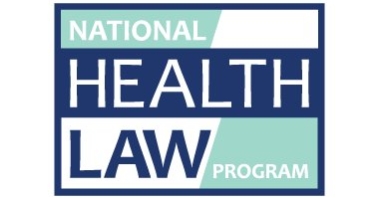- Abigail Coursolle
- Alejandra Pavisich
- Alejandra Pavisich
- Alexis Robles-Fradet
- Alicia Emanuel
- Amanda Avery
- Amy Chen
- Andy DiAntonio
- Arielle Linsey
- Brian Brooks
- Candace Gibson
- Carly Myers
- Cassandra LaRose
- Cat Duffy
- Catherine McKee
- Cathren Cohen
- Charlie Blodnieks
- Charly Gilfoil
- Cheyenne Peters
- Christina Piecora
- Corey Davis
- Dania Douglas
- Daniel Young
- David Machledt
- Deanna Hartog
- Elizabeth Edwards
- Elizabeth G. Taylor
- Emma Parker-Newton
- Eskedar Girmash
- Fabiola De Liban
- Georgesula Ziama
- Geron Gadd
- Hannah Eichner
- Hayley Penan
- Héctor Hernández-Delgado
- Ian McDonald
- Jane Perkins
- Jasmine Young
- Jennifer Lav
- Joe McLean
- Jules Lutaba
- Kally Xu
- Kasey Nichols
- Kavisha Prajapati
- Kimberly Lewis
- Leonardo Cuello
- lhigashi
- Liz McCaman Taylor
- Madeline Morcelle
- Mara Youdelman
- Margaret Okakpu
- Maya Levin
- Michelle Lilienfeld
- Michelle Yiu
- Miriam Delaney Heard
- Mizue Suito
- Priscilla Huang
- Rachel Holtzman
- Rolonda Donelson
- Sarah Grusin
- Sarah Somers
- Skyler Rosellini
- Susan Berke Fogel
- T. Nancy Lam
- veng
- Walter Hsiang, MD
- Wayne Turner
- Zamir M. Brown
- Show all
- Alabama
- Alaska
- All United States
- Arizona
- Arkansas
- California
- Colorado
- Connecticut
- Delaware
- District of Columbia
- Florida
- Georgia
- Hawaii
- Idaho
- Illinois
- Indiana
- Iowa
- Kansas
- Kentucky
- Louisiana
- Maine
- Maryland
- Massachusetts
- Michigan
- Minnesota
- Mississippi
- Missouri
- Montana
- National
- Nebraska
- Nevada
- New Hampshire
- New Jersey
- New Mexico
- New York
- North Carolina
- North Dakota
- Ohio
- Oklahoma
- Oregon
- Pennsylvania
- Rhode Island
- South Carolina
- South Dakota
- Tennessee
- Texas
- Utah
- Vermont
- Virginia
- Washington
- West Virginia
- Wisconsin
- Wyoming
- December 9, 2021
Contraceptive Equity Primers
Read moreState Contraceptive Equity laws can play a critical role in filling the remaining gaps from the Affordable Care Act, and have the potential to expand equitable access to contraceptive services for all. This series of primers is designed to educate advocates and policymakers on the basics of Contraceptive Equity…
- December 7, 2021
Model Contraceptive Equity Act: Legislative Language and Issue Brief
Read moreUPDATED - December 2021. Contraceptive Equity is a policy framework under which contraceptive care is easily accessible and covered at no cost in all health plans. This paper begins with the Model Contraceptive Equity Act legislative language that can serve as a template for state advocates. It concludes with…
- December 6, 2021
Q&A: State Contraceptive Equity Laws
Read moreThe Affordable Care Act (ACA) requires most health insurance plans to provide coverage for a broad range of women’s preventive health services without cost-sharing, including all Food and Drug Administration (FDA)-approved methods of contraception. While this requirement is a welcome and significant step forward, gaps in comprehensive coverage remain,…
- December 3, 2020
NHeLP Comments on HHS Regulations Rule (aka SUNSET Rule)
Read moreIn the Regulations Rule, HHS seeks to retroactively impose a mandatory expiration date on an estimated 18,000 duly promulgated regulations. Even long-standing rules would be automatically rescinded unless they survive a complex process of assessment and review. Programs like Medicaid and the Children's Health Insurance Program (CHIP) could be…
 September 17, 2020
September 17, 2020NHeLP comments on Approved Drug Products with Therapeutic Equivalence Evaluations (the “Orange Book”)
Read moreThe Orange Book is an important and informative drug resource for a range of stakeholders. In a request for comments, FDA seeks feedback on the types of people or entitles using the Orange Book, additional information and features to incorporate into the Orange Book, and therapeutic equivalence information. NHeLP…
- July 20, 2020
NHeLP comments on Medicaid Prescrption Drug Rebate Program and Value- based Purchasing Proposed Rulemaking
Read moreIn a proposed rule, CMS seeks to expand value-based purchasing arrangements for prescription drugs in commercial plans and the Medicaid program. However, the proposed changes offer a cost-containment strategy with no safeguards to ensure that Medicaid enrollees can continue to access needed outpatient prescription drugs. NHeLP comments warn against“cost…
